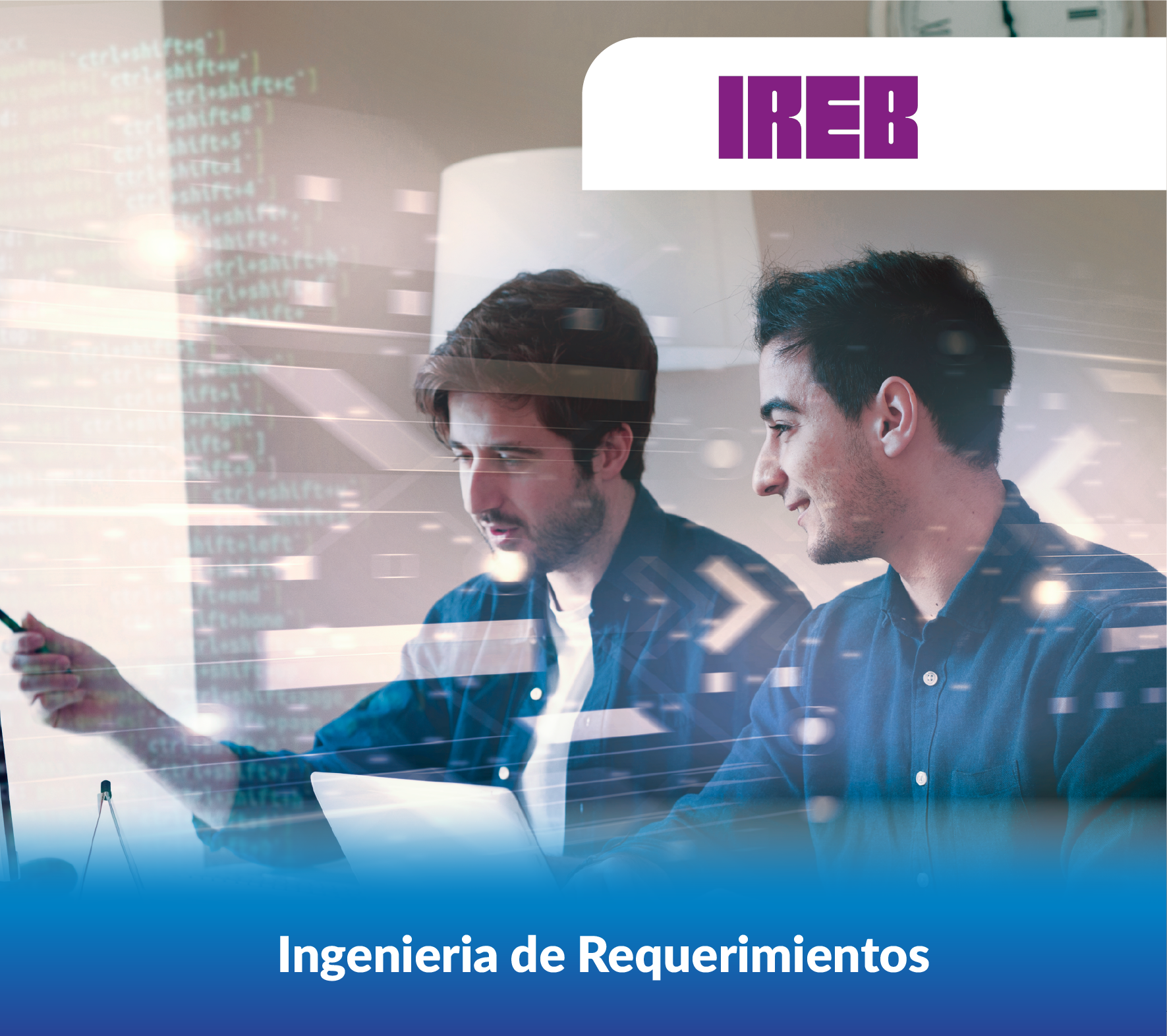
Síntomas y causas de una Ingeniería de requisitos deficiente.
Explicación de términos (requisito, stakeholder, ingeniería de requisitos).
Actividades principales de la Ingeniería de Requisitos.
Perfil y Habilidades del Ingeniero de Requisitos.
Tipología de requisitos (reglas de negocios, funcionales, no funcionales).
Este es un módulo de prueba para verificar funcionalidad
This Requirements Engineering course is designed to provide participants with deep and applied knowledge about the identification, documentation, validation and management of requirements in technology projects. The teaching methodology follows the practical approach Learning Method, where participants will develop skills through problem solving in simulated environments and the construction of a real project, emulating work activity in companies.
Throughout the course, the fundamental principles of requirements engineering will be addressed, from its definition and categorization to its documentation using formal tools and models such as UML. In addition, the application of validation, negotiation and requirement management techniques will be reinforced, ensuring that participants acquire practical experience that allows them to successfully perform in related roles.
The course also prepares participants to present the IREB Foundation Level certification, an international certification recognized in the field of requirements engineering.
Upon completing the course, participants will be able to:
To enroll in this course, participants must meet the following mandatory requirements:
| Requirements Engineering | Applies |
|---|---|
| Requirements Engineering | 24 hours |
The learning methodology, regardless of the modality (in-person or remote), is based on the development of workshops or labs that lead to the construction of a project, emulating real activities in a company.
The instructor (live), a professional with extensive experience in work environments related to the topics covered, acts as a workshop leader, guiding students' practice through knowledge transfer processes, applying the concepts of the proposed syllabus to the project.
The methodology seeks that the student does not memorize, but rather understands the concepts and how they are applied in a work environment.
As a result of this work, at the end of the training the student will have gained real experience, will be prepared for work and to pass an interview, a technical test, and/or achieve higher scores on international certification exams.
You do not need to pay to pre-enroll. By pre-enrolling, you reserve a spot in the group for this course or program. Our team will contact you to complete your enrollment.
Pre-enroll nowMake your payment quickly, safely and reliably
- For bank transfer payments, request the details by email
capacita@aulamatriz.edu.co.
- If you wish to finance your payment through our credit options
(Sufi, Cooperativa Unimos or Fincomercio), click on the following link:
Ver opciones de crédito.
This Requirements Engineering course is designed to provide participants with deep and applied knowledge about the identification, documentation, validation and management of requirements in technology projects. The teaching methodology follows the practical approach Learning Method, where participants will develop skills through problem solving in simulated environments and the construction of a real project, emulating work activity in companies.
Throughout the course, the fundamental principles of requirements engineering will be addressed, from its definition and categorization to its documentation using formal tools and models such as UML. In addition, the application of validation, negotiation and requirement management techniques will be reinforced, ensuring that participants acquire practical experience that allows them to successfully perform in related roles.
The course also prepares participants to present the IREB Foundation Level certification, an international certification recognized in the field of requirements engineering.
Upon completing the course, participants will be able to:
To enroll in this course, participants must meet the following mandatory requirements:
| Requirements Engineering | Applies |
|---|---|
| Requirements Engineering | 24 hours |
The learning methodology, regardless of the modality (in-person or remote), is based on the development of workshops or labs that lead to the construction of a project, emulating real activities in a company.
The instructor(live), a professional with extensive experience in work environments related to the topics covered, acts as a workshop leader, guiding students' practice through knowledge transfer processes, applying the concepts of the proposed syllabus to the project.
La metodología persigue que el estudiante "does not memorize", but rather "understands" the concepts and how they are applied in a work environment."
As a result of this work, at the end of the training the student will have gained real experience, will be prepared for work and to pass an interview, a technical test, and/or achieve higher scores on international certification exams.
You do not need to pay to pre-enroll. By pre-enrolling, you reserve a spot in the group for this course or program. Our team will contact you to complete your enrollment.
Make your payment quickly, safely and reliably
- For bank transfer payments, request the details by email
capacita@aulamatriz.edu.co.
- If you wish to finance your payment through our credit options
(Sufi, Cooperativa Unimos or Fincomercio), click on the following link:
Ver opciones de crédito.